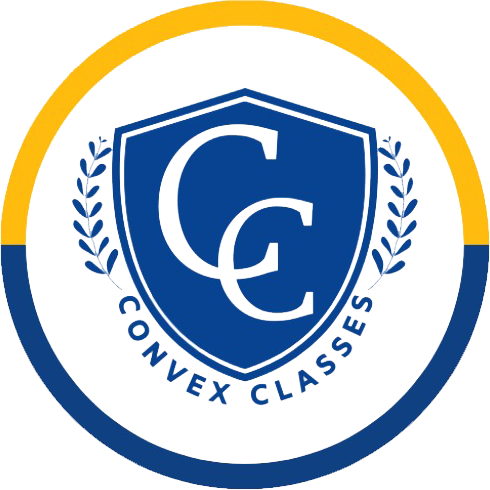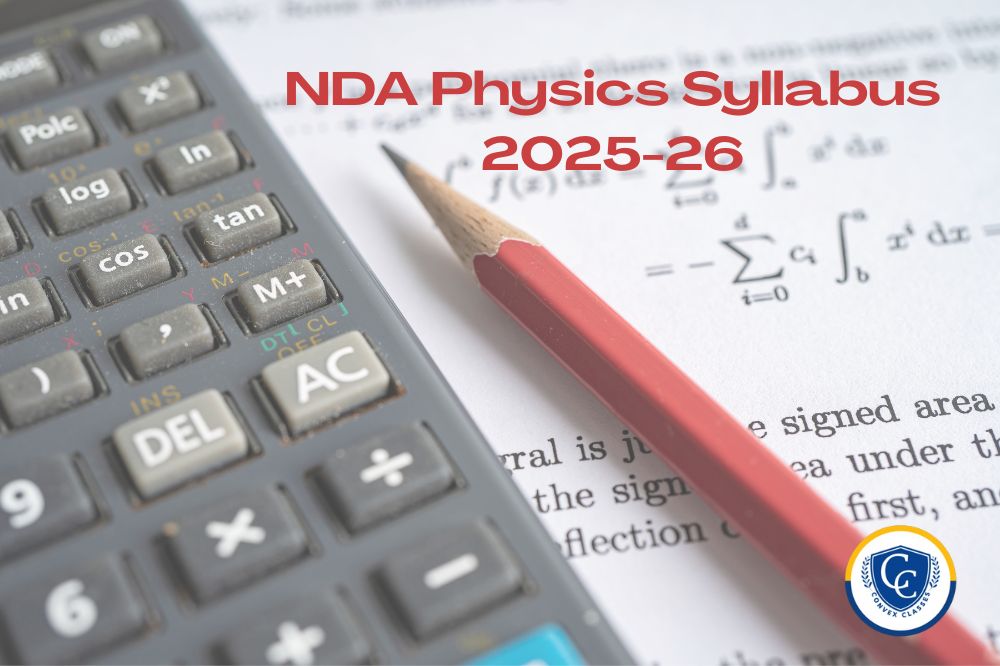The National Defence Academy (NDA) exam is a highly competitive gateway for those aspiring to serve in the Indian Armed Forces. Mastery of Physics is crucial for the exam’s General Ability Test, which is based on 10+2 level concepts. This guide outlines the entire NDA Physics Syllabus 2025 chapter by chapter, enabling you to create a focused and organized study plan.
Exam Overview
The NDA Physics paper tests your understanding of basic physics concepts along with your ability to apply them in problem-solving scenarios. The syllabus covers:
- Fundamental principles from textbooks
- Topics involving theoretical knowledge and numerical problems
- Concepts in both classical and modern physics
Taking a structured approach to your preparation by following this guide will help improve your confidence and performance on exam day.
Detailed Syllabus Breakdown
Below is a table that provides a clear, chapter-wise breakdown of the NDA Physics Syllabus 2025 along with the key subtopics you need to cover:
| Chapter | Subtopics Covered |
|---|---|
| 1. Properties of Matter | States of matter, physical properties, mass, weight, volume, density, specific gravity; Principle of Archimedes; Pressure and barometer concepts. |
| 2. Mechanics | Motion of objects (linear & circular), velocity, acceleration, Newton’s laws of motion, force, momentum, equilibrium, gravitation, work, power, and energy fundamentals. |
| 3. Heat | Measurement of temperature, modes of heat transfer (conduction, convection, radiation), effects of heat, change of state, and latent heat. |
| 4. Sound | Properties of sound waves, speed of sound, principles of vibration, and simple musical instruments. |
| 5. Optics | Rectilinear propagation of light, reflection and refraction, spherical mirrors and lenses, human eye functioning, and an overview of optical instruments such as telescopes and microscopes. |
| 6. Magnetism | Properties of magnets, differences between natural and artificial magnets, and an understanding of the earth as a magnet. |
| 7. Electricity | Static and current electricity, conductors and insulators, Ohm’s law, simple electrical circuits, and topics on electrical power, heating, and lighting along with magnetic effects. |
| 8. Chemical Cells | Types of chemical cells including primary and secondary cells, and the basic principles of electrochemistry. |
| 9. X-Rays | Fundamental properties and applications of X-rays along with essential safety measures. |
Use this table as a checklist to ensure you have covered all key areas while revising Physics topics.

Study Tips and Preparation Strategies
Create a Study Timetable:
Plan dedicated time slots for each chapter. Balance your preparation between theory and numerical problem-solving.
Focus on Fundamentals:
Revise your 10+2 textbooks and NCERT materials to build a strong foundation. Clear understanding of basic concepts is essential.
Practice Regularly:
Solve previous years’ NDA paper questions and take mock tests. This will enhance your speed and accuracy while helping you identify weak areas.
Use Diagrams and Visual Aids:
Draw diagrams for complex topics in mechanics, optics, and electricity. Visual aids help in retaining detailed processes and formulas.
Join Study Groups:
Collaborating with peers can provide different perspectives and support. Group discussions often clarify doubts and reinforce learning.

Frequently Asked Questions (FAQs)
Q1. What level is the NDA Physics syllabus 2025 based on?
The syllabus is based on topics covered in the 10+2 curriculum, so a strong grasp of high school physics is essential.
Q2. Which chapters should I focus on for maximum scoring potential?
While all topics are important, chapters on Mechanics and Electricity often have significant weight. Make sure to allocate extra practice time to these areas.
Q3. Are there any recommended books or study materials?
NCERT textbooks for Physics are a great starting point. Additionally, NDA preparation guides and solved papers from previous years will help solidify your understanding and application of concepts.
Q4. How can I improve my problem-solving speed?
Regular practice with timed mock tests and previous year question papers will help build your speed. Analyze mistakes carefully and revise key formulas regularly.
Q5. What is the best way to recall complex topics like Optics and Magnetism?
Using flowcharts, diagrams, and mnemonics can help simplify and remember detailed subtopics. Repeated revision and active participation in study sessions also reinforce learning.

Final Thoughts
A thorough understanding of the NDA Physics Syllabus 2025 is your first step toward excelling in the NDA exam. By breaking down the topics into manageable sections and using this guide as your roadmap, you can better organize your preparation, master fundamental concepts, and perform confidently on exam day. Consistent practice, revision, and a well-planned study strategy will be key to your success.




